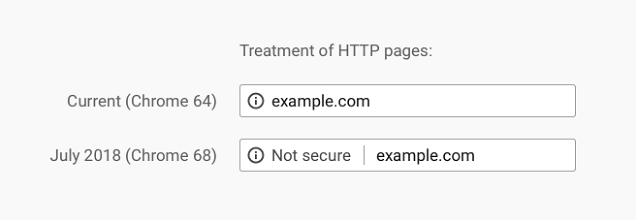When you think about the word secure what other words come to mind? Safe? Protected? Here is what Google gave us:
synonyms:
safe, protected, protected from harm/danger, out of danger, sheltered, safe and sound, out of harm’s way, in a safe place, in safe hands, guarded, invulnerable; More at ease, unworried, relaxed, happy, confident “an environment in which children can feel secure.”
Just in case your are still confused, here is an explanation from the team at TheSSLstore.com explaining the difference secure vs not secure:
HTTP is ancient by computer standards. It’s a protocol for communication, and it worked fine for a while. Unfortunately, when you make an HTTP connection with a website, that connection is not secure. That means that anyone can eavesdrop on the connection and steal or manipulate any data passed back-and-forth.
HTTPS is secure. When you make a connection with a website, the data sent is encrypted. That essentially makes it worthless to anyone without the corresponding key. Beyond security, HTTPS also blocks ISPs from injecting ads on your website. It is faster and performs better than HTTP, and you have to have encryption to use HTTP/2, which is becoming more widely adopted by the day.


